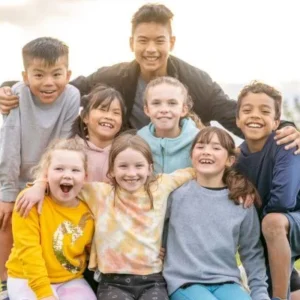Governor Kathy Hochul announced that $40.6 million has been awarded to New York State’s Youth Employment Program, aimed at reducing community gun violence and youth involvement in the criminal justice system. The initiative provides year-round employment and training opportunities to at-risk youth in regions outside New York City most impacted by gun violence. Launched in 2024, the program is a critical part of the state’s Gun Involved Violence Elimination (GIVE) initiative, which operates in 21 counties receiving GIVE funding through the Division of Criminal Justice Services.
The funding will support at least 2,500 low-income youth from September 2025 to June 2026, offering paid work, career exploration, and educational activities. The program is administered by the Office of Temporary and Disability Assistance, which works with local departments of social services to provide youth with meaningful work opportunities in conjunction with the Summer Youth Employment Program. Paid employment is a central component, helping participants gain workplace skills while fostering long-term educational and career growth.
Research shows that vulnerable, unemployed youth face higher risks of poverty, reliance on public assistance, and involvement in the criminal justice system. Exposure to trauma and violence further increases barriers to stable employment and financial security. The program addresses these challenges by connecting youth with paid employment in schools, libraries, restaurants, childcare programs, and other community organizations. In its first full year (September 2024 to June 2025), more than 4,000 youth participated in the program, gaining work experience and professional development.
Eligible participants must be between 14 and 20 years old and live in households with incomes below 200 percent of the federal poverty level. The FY26 Enacted Budget included an increase of $1.8 million to account for minimum wage increases effective January 1, 2025. Program providers are encouraged to collaborate with local law enforcement, community organizations, and SNUG Street Outreach programs, which use a public health approach to prevent gun violence by addressing its sources and impacts within communities.
Officials emphasized the broader benefits of the Youth Employment Program, highlighting its role in promoting public safety and community well-being. Commissioner Barbara C. Guinn noted that the program provides vulnerable youth with income, skills, and work experience while deterring involvement in gun violence. Commissioner Roberta Reardon underscored how meaningful employment opens doors to future careers and strengthens communities. Commissioner Rossana Rosado stressed that connecting at-risk youth with jobs and mentorship contributes to safer neighborhoods, while Dr. DaMia Harris-Madden highlighted the program’s role in building soft skills essential for workforce success and long-term economic self-sufficiency.
State legislators also voiced support, noting the program’s transformative impact on young people’s lives. Senator Roxanne J. Persaud emphasized that youth employment initiatives keep participants out of harm’s way while providing tools to build stable futures. Assemblymember Jeffrey Dinowitz highlighted how funding helps vulnerable youth transition into the workforce, reduces involvement in gun violence, and improves financial stability, citing community-based programs in the Bronx as examples of successful implementation.







